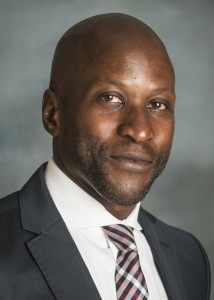Despite changing views on higher education, a college degree is still worth it, CSUN dean says
A college degree has the power to transform lives – from higher earnings to upward mobility in the job market – and for decades research showed that earning a degree is almost always worthwhile.
However, new research and polling show that more Americans now doubt a previously unquestioned fact of U.S. life — that going to college is worth it. Experts say the rising cost of college, ballooning student loan balances and high paying jobs that do not require a typical college degree have played a role in changing views about higher education. Several factors have also impacted college enrollment, like falling birth rates and the economic impact of the COVID-19 pandemic.

Yan Searcy, dean of the College of Social and Behavioral Sciences at California State University, Northridge.
But that might not tell the whole story, said Yan Searcy, dean of the College of Social and Behavioral Sciences at California State University, Northridge. While he acknowledges these factors and shifting views, Searcy said a college degree still holds value for beyond just one individual.
“A college degree is more than just about economic or social mobility, it changes perspective, it develops relationships, and it not only affects that one individual, but it also affects that entire family unit and beyond,” Searcy said. “That is something powerful and is proof that higher education is always a worthy investment.”
Still, Searcy said, rising costs of tuition and fears of student loan debt are real factors when an individual considers going to college today. Searcy referred to the various journeys that students may take depending on their economic background.
“You compare a second- or third-generation college student who is three years out of college making $65,000 and they’re still paying off student loans, they’re not going to talk to you about the college experience. They are going to talk to you about the financial one,” Searcy said.
“On the other hand,” he continued, “if you ask a graduate who is Pell-grant eligible and ask them three years out ‘was higher education worth it?’ about 90 percent are going to say yes.”
It also depends on who you ask, he said, noting political realignment over the last decade has contributed to the growing public opinion divide on higher education. Searcy said those who identify as conservative have grown more skeptical about college environments where neither their ideas nor their children find values that align with their politics.
There has also been a trend in career path changes since the COVID-19 pandemic, Searcy said. Many students he has spoken with in recent years have either left college or have questioned their post-degree plans due to some high paying jobs – such as those in the technology sector – that do not require college degrees for entry level positions, Searcy said.
“That may be a reason we are seeing that higher education is not as valued as it once was,” he said.
While views on higher education might differ depending on who you ask, he said, colleges have to do a better job at supporting students and putting them in a position to succeed.
“As soon as you hit a college campus, you have to be able to not just see yourself there, you have to have an experience that you feel makes it worth it,” Searcy said. “These institutions have to do a better job of introducing concepts, ideas and classes to students that reflect what their interests are.”

 experience
experience